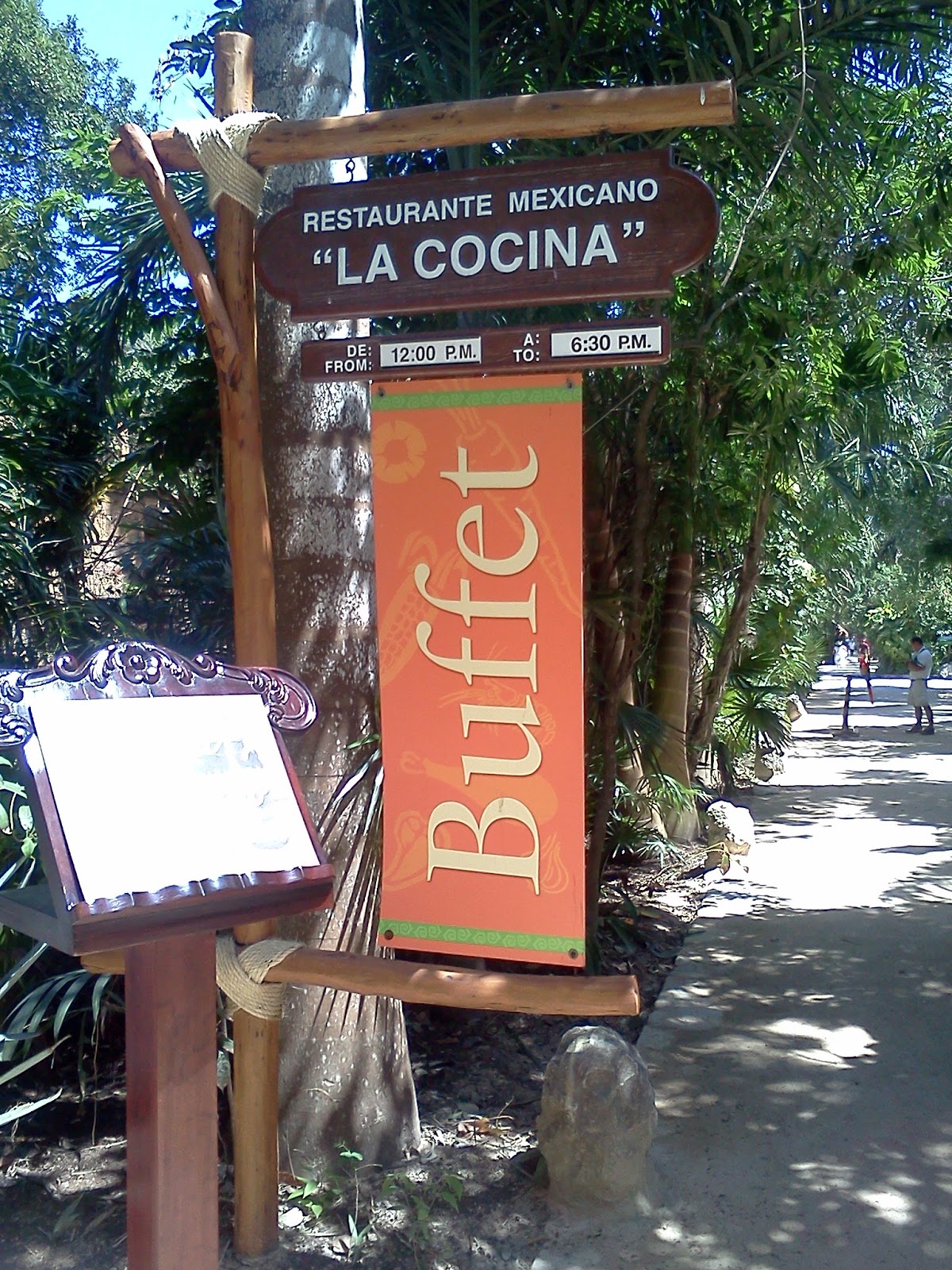 |
| La Cocina Mexican Restaurant Buffet |
Xcaret Park describes itself as a water park but it is actually closer in description to an interactive open air museum. The visitor experiences 3,000 years of living Mexican History and Culture. Most open air museums have period actors dressed in costumes to lead tours of the history of the museum. Xcaret Park prides itself on authenticity. The Mayans are verified descendants of the Mayan lineage. The Mexican cuisine is authentic as well with dishes from various states and recipes that are centuries old. La Cocina Mexican Buffet at Xcaret allows visitors to feast upon a large selection of Traditional Mexican Cuisine that includes breads made from a 500 year-old recipe. Xcaret Park has its own corn patch from which corn tortillas are made fresh every morning. Xcaret Park is a true Eco-system with food being recycled for compost. Xcaret Park preserves and gives voice to the Mexican point of view of Mexico's Culture and History.
Mexican cuisine - fundamental element of cultural identity - Intangible Heritage of Humanity
 |
| Mexican Bread 500 Year Old Recipe |
UNESCO states "Traditional Mexican cuisine is a comprehensive cultural model comprising farming, ritual practices, age-old skills, culinary techniques and ancestral community customs and manners. It is made possible by collective participation in the entire traditional food chain: from planting and harvesting to cooking and eating. The basis of the system is founded on corn, beans and chili; unique farming methods such as milpas (rotating swidden fields of corn and other crops) and chinampas (man-made farming islets in lake areas); cooking processes such as nixtamalization (lime-hulling maize, which increases its nutritional value); and singular utensils including grinding stones and stone mortars. Native ingredients such as varieties of tomatoes, squashes, avocados, cocoa and vanilla augment the basic staples. Mexican cuisine is elaborate and symbol-laden, with everyday tortillas and tamales, both made of corn, forming an integral part of Day of the Dead offerings. Collectives of female cooks and other practitioners devoted to raising crops and traditional cuisine are found in the State of Michoacán and across Mexico. Their knowledge and techniques express community identity, reinforce social bonds, and build stronger local, regional and national identities. Those efforts in Michoacán also underline the importance of traditional cuisine as a means of sustainable development."
Did you know that Traditional Mexican cuisine is included in the Inventory of the Intangible Cultural Heritage of Mexico maintained by the National Council for Culture and Arts?
Related Articles